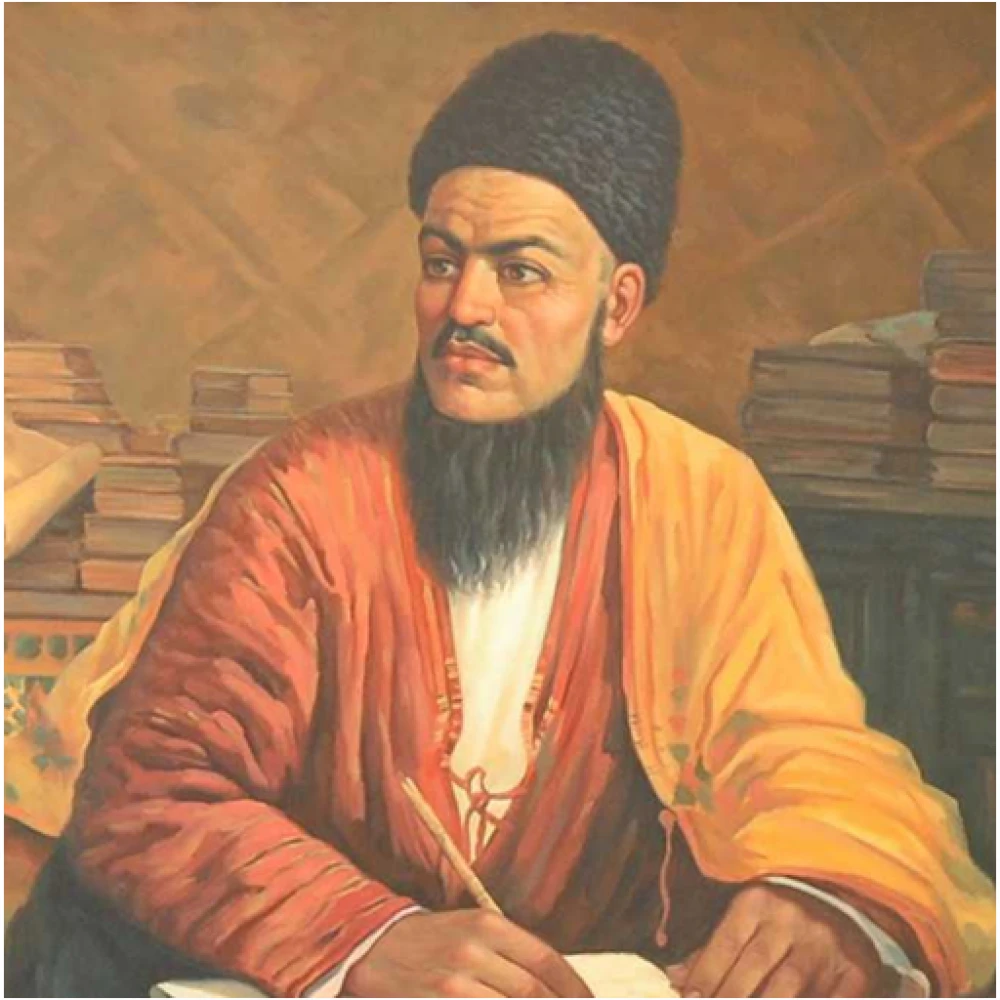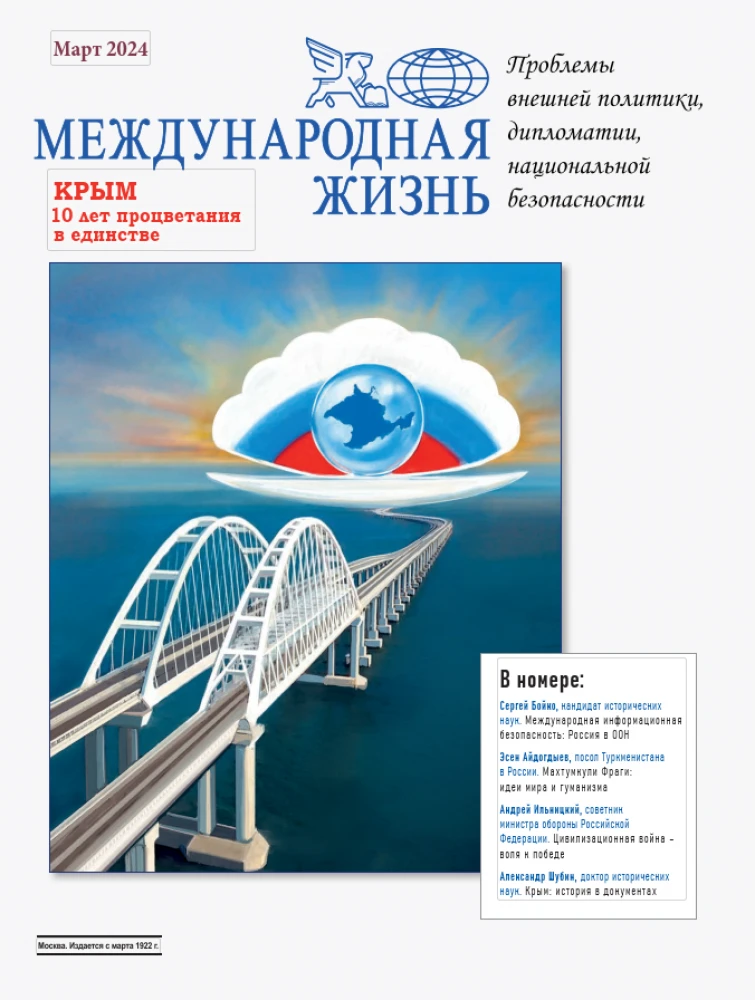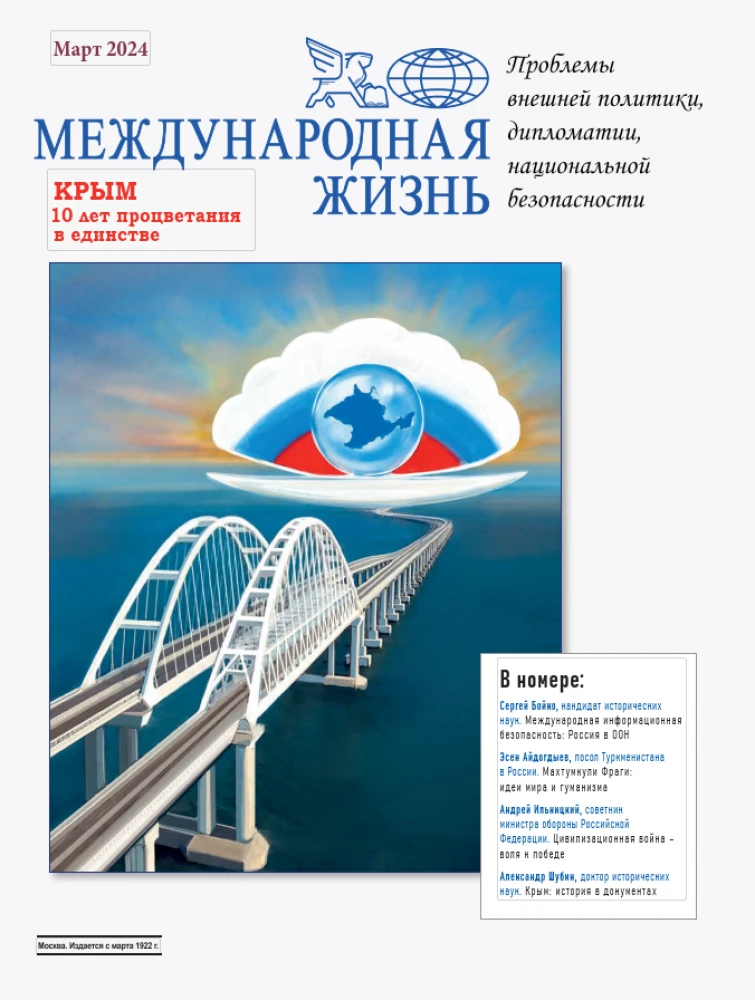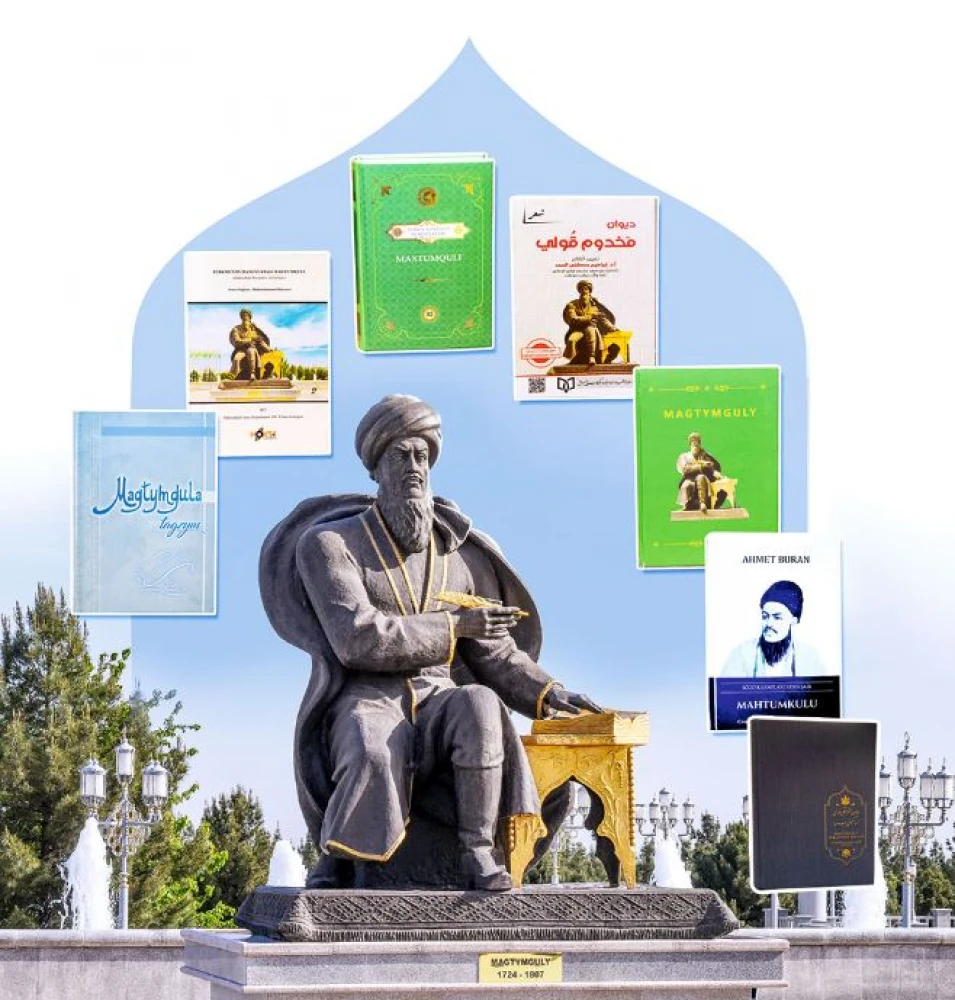
3882
Contrastive study of the predicate in the poems of Magtymguly Pyragy (based on English translation)
During the period of the Revival of a New Era of a Powerful State, famous personalities of the Turkmen people, the life and work of our classical poets are scientifically studied, and their precious heritage is available to our people.
The rich and valuable literary heritage of Magtymguly Pyragy, included in the treasury of world literature, his secular views, philosophical thoughts in his poems, especially his great influence on Turkmen life in the XVIII-XIX centuries, including his inseparable connection with the scientific and cultural life of the whole East, have been translated into many world languages. which indicates a growing interest in the literary heritage of the great master of the word.
Magtymguly Pyragy wrote poems in a form understandable to the Turkmen public. As we know, the problem of translation in the modern world of science is characterized by globalization and universalization.
The great poet's unique poems in world literature are distinguished by their artistry, depth of meaning, in world literature are distinguished by their artistry, depth of meaning, richness of national content, and humanitarian ideas.
In modern linguistics, various methods of language analysis are widely used. In accordance with the traditional principles of language theory, the contrastive method of studying related languages is actively used along with the contrastive method of studying non-related languages.
The general principles of a contrastive analysis of the unrelated and different in structure and method of development are one of the urgent trends in linguistics. The main unit of the syntax of the Turkmen and English languages is the structure of the sentence, and the main member of this structure is the study of predicates on a scientific basis, at the same time it is one of the main problems of languages. According to the scientific sources on the syntax of the Turkmen language, several textbooks and manuals contain relevant information on the division of simple and compound predicates and their types. Even in the scientific sources on the syntax of the English language, the predicate is also provided as the main center of the sentence, its service in the sentence and as well as its types. That is, linguistic problems, grammatical and socio-cultural problems often arise in the translation method. Because when translating some vessels from one language to another, you may have problems using structure of the sentences in non-related languages. As you know, the famous anthropologist Paul Michael Taylor translated the poems of the great poet into English. By analyzing the lines of this poem, we are trying to solve the main problems that arise when interpreting predicates in the two languages in the translation processes used and to show the similarities and differences in the use of the types of predicate. Paul Michael Taylor's English translation of the wise poet's poem "Turkmen":
He is a son of a brave man, his forefathers were brave,
Gorogly is his brother, his enthusiasm is high,
If hunters hunt for him in the mountains or steppes,
A Turkmen, the son of a lion, won’t be caught alive.
***
Ol merdiň ogludyr, mertdir pederi,
Görogly gardaşy, serhoşdyr seri,
Dagda, düzde kowsa, saýýatlar,
Diri Ala bilmez, ýolbars ogly türkmeniň.
In the Turkmen language, a simple predicate is expressed through various ways. For example, the predicate of the first line is a simple predicate which it is expressed by a noun (ogludyr) in the Turkmen language: “Ol merdiň ogludyr, mertdir pederi”, but in English it is a compound nominal predicate “He is a son of a brave man, his forefathers were brave”. In English a simple predicate is used with the present and past forms of the link verb to be (is, were)+ noun, adjective ( a son, brave ). Then the predicate of the second line is a simple predicate which it is expressed by a noun “Görogly gardaşy, serhoşdyr seri”, but in English “Gorogly is his brother, his enthusiasm is high” is a compound nominal predicate. For example, in the third line of the poem, "kowsa", "hunt (simple verbal predicate)" serves a simple predicate in both languages. So, it can be seen that there are similarities in both languages. For example: “Ala bilmez,......” is expressed as a compound predicate in the Turkmen language , the main word in Turkmen language serves the compound predicate using in the future tense of the verb, and its equivalent in English is "won't be caught (The Future Indefinite) Tense in the passive voice)” is expressed as a simple predicate. As it is known that the analyzed examples have been shown the differences and similarities of the types of predicate in non-related languages.
Conclusion
Contrasting of the two languages should help us study them together. Since contrasting and comparative material appears in the process of mastering a foreign language, many phenomena of the native language better understood and studied. So, native language can positively influence on the process of foreign language acquisition since students can apply the same experiences, methods and skills they used while studying their own language. Contrastive two language grammars and contrastive type of research are of use to translators and editors as well as linguists in general. Contrasting of two language systems can reveal certain regularities in one of them which have not become the object of study till this time. In recent years the simultaneous comparative study of languages has become still more topical in connection with the research in the field of machine translation research. The close relationship between contrastive grammar and teaching methodology is particularly evident from the fact that CG is the basis of the methodology for the invention of new teaching methods. CG is a branch of linguistic science, while methodology refers to pedagogical research. In the work of Magtymguly Pyragy, the widespread use of such artistic means as metaphors, metaphors increased the artistry and imagery of the poet's poems. The skill of a translator lies in being able to convey a meaning that is close to the artistic means used in poems. Magtymguly Pyragy is a genius poet who recognized Turkmen classical literature with his unique creativity. It is the role of translators to convey such values to the world readers. The predicate in the Turkmen and English languages consists of a word or phrase that is the central member of the sentence and is more important than the subject. In general, when translating the various creativity of a thinker and poet, some difficulties arise when the predicate is considered as the main member of the sentence. However, it is our duty to spread the poet's creativity in the world using the subtleties of the language.
Chemen BAYRIEVA,
Senior lecturer of the Institute of International Relations
of the Ministry of Foreign Affairs of Turkmenistan


